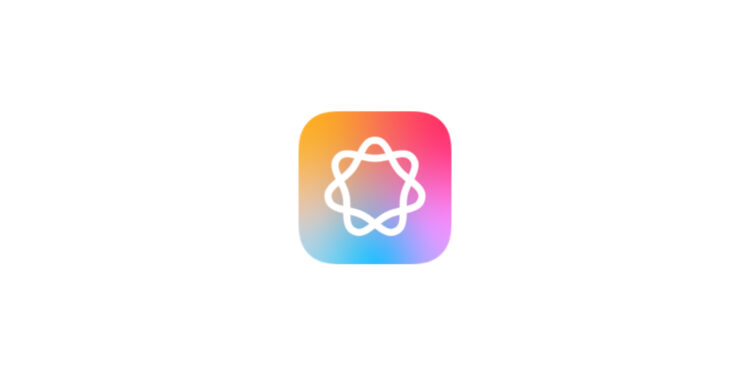In 2017, shortly before the opening of Apple Park, Apple broke ground on a project now known as Apple Intelligence. This platform represents the culmination of years of research and development in the field of artificial intelligence (AI) and machine learning (ML). While Apple has often been said to be behind other tech giants when it comes to AI, with the launch of Apple Intelligence the company is demonstrating that it not only understands this technology but is redefining it.
Artificial intelligence has long been an essential component of modern technology. But Apple's approach sets it apart: instead of just focusing on functionality, the company wants to combine AI with a high level of data protection and personal relevance. While critics often accuse Apple of lagging behind in AI, the tech giant is now impressively demonstrating that it can not only keep up but also set standards. Apple Intelligence is more than a product - it is part of a strategy to make technology more tangible and user-centric.
The Development of Apple Intelligence
According to Tim Cook, it all started in 2017, shortly before the opening of Apple Park (via Wired). At that time, Apple integrated a neural engine into its products for the first time to pave the way for artificial intelligence and machine learning. Cook describes this moment not as a sudden realization but as a slow, steady development - comparable to a wave or a clap of thunder that builds over time. In 2018, Apple stepped up its efforts by bringing John Giannandrea, then Google's AI chief, onto the team. Giannandrea brought with him a clear vision: machine learning should permeate every level of Apple products. Since then, Apple has been working in the background on technologies that seamlessly integrate AI into its hardware and software. The decisive breakthrough came in 2024 with the official announcement of Apple Intelligence at WWDC. Since then, the technology has been integrated bit by bit into new products and operating systems, starting with iOS 18.1.
The functions of Apple Intelligence
Apple Intelligence is a platform designed to make artificial intelligence more accessible to users' everyday lives. The first features were introduced with iOS 18.1, and further improvements are already on the way for iOS 18.2 and beyond. Here are some of the key features:
- Personal assistants: Apple Intelligence helps you complete tasks such as writing and editing texts faster and easier. The tool helps you make content more professional without losing your own style.
- Integration with Apple products: The technology works in the background to better tailor your devices to your needs. Photos, documents and workflows can be organized and optimized to suit your everyday life.
- Privacy protection: Unlike many other providers, Apple performs AI calculations directly on your devices. This means that your data is not uploaded to external servers - a decisive advantage in terms of data protection.
Data Protection and Innovation
Apple repeatedly emphasizes that innovation and data protection must go hand in hand. Tim Cook describes Apple Intelligence as a tool that should support people but not replace them. "It still comes from you," says Cook, making it clear that Apple does not want to take control of its users' thoughts and decisions. An interesting analogy from Cook compares Apple Intelligence to the introduction of the personal computer. Similar to that time, AI should help to increase productivity without reducing the user's personal responsibility. He also draws parallels to Logic Pro, which helps musicians make better music but still lets them remain the authors of their works.
Collaboration at Apple Park
Another key factor in Apple Intelligence's success is the teamwork at Apple Park. The futuristic headquarters was deliberately designed to encourage spontaneous encounters between employees. Tim Cook is convinced that these unplanned interactions often produce the best ideas. He describes Apple Park as a "100-year decision" that is intended to promote innovation and creativity in the long term.
Looking to the Future
Apple plans to continually expand the functions of Apple Intelligence. The platform will continue to be developed with new updates and features until at least 2025. For Apple, this is not just about technological advances, but also about improving users' everyday lives in meaningful ways. Tim Cook himself seems to be full of enthusiasm for the company despite his long career at Apple. Although he has hinted in the past that he will leave Apple within a decade, he is not making any concrete statements about it today. "It is the privilege of my life to be here," says Cook, emphasizing how much he loves Apple and how difficult it would be for him to leave the company at some point.
Apple Intelligence: A New Era of Technology
Apple Intelligence impressively shows how a company can use technology to create real added value for its users. With a clear focus on data protection, user-friendliness and innovation, Apple stands out from the competition and sets new standards in the industry. Apple Intelligence marks the beginning of an exciting new era for Apple users - and it remains to be seen what further advances the company will present in the coming years. (Image: Apple)
- Insights into Apple's future: Who will succeed Tim Cook?
- Siri 2.0: How LLM Siri could overtake the competition
- AI and Apple: Why the gap is only apparent





